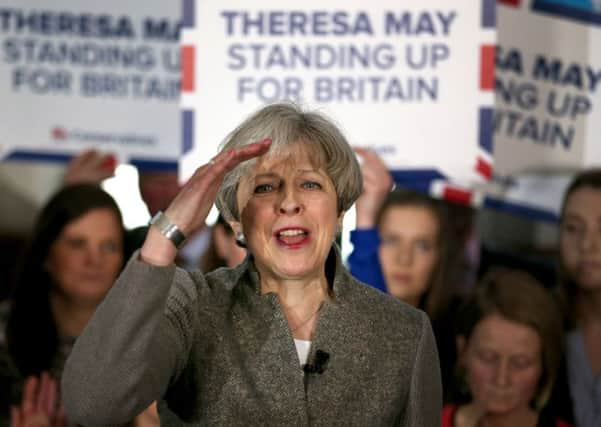Martin Flanagan: Will Theresa May grasp the pensions nettle?
This article contains affiliate links. We may earn a small commission on items purchased through this article, but that does not affect our editorial judgement.


That is the guarantee brought in by the Cameron/Clegg coaltion government that state pensions would rise each year by the higher of inflation, average earnings growth or 2.5 per cent.
• READ MORE: SNP claims Theresa May wants to ‘cut pensions’
The triple lock for the grey pound has become controversial amid widespread austerity and Generation Rent. But chancellors have shown marked reluctance to scupper the superannuated perk. Unsurprising, given there could be an element of turkeys voting for Christmas in such a bold move by any government. The older generation is much more electorally active than younger people.
Advertisement
Hide AdAdvertisement
Hide AdBut many a demarche is risky until someone finally grasps the nettle and decides the logic of keeping a guarantee in the face of big changes in conditions for the wider electorate is untenable. We may be at that position.
After all, retired people already have much of society’s money and the bricks and mortar. Meanwhile, the unretired fifty-somethings have many of the jobs blocking a restless Generation Y.
And, interestingly, if anyone has the general gravitas and studied caution to help get such a change through without disproportionate electoral damage being vented by vengeful septuagenarians and octogenarians it is probably Theresa May.
There is even a halfway house approach that may appeal to the PM and Chancellor Philip Hammond (if the latter is not too shop‑soiled for consideration following his last Budget’s self-employed taxation rise gaffe). Make it a double-lock, thereby raising some money for our embattled public finances (it costs £6 billion a year) while avoiding the feared politically nuclear option.
One could simply bin the arbitrary 2.5 per cent annual rise, leaving it a straight run-in for the state pension cash boost between inflation and average earnings growth, both currently below that figure.
Or, more bold perhaps, decide that the annual rise will be in lockstep with one thing: average wage growth. That would at least mean we would all, workers and retired, be sharing in the same buoyancy or trials of the economy.